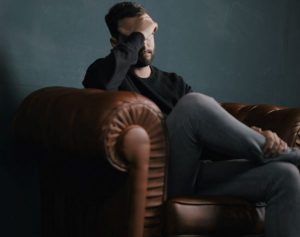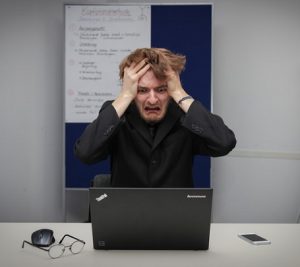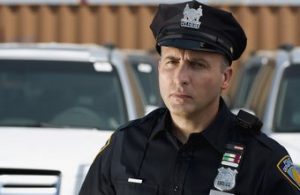Members of the law enforcement community understand that their jobs are extremely stressful. For so many of them, they carry that stress around with them like another piece of equipment on their utility belts. What many people don’t realize is that there are many instances of PTSD in law enforcement officers.
PTSD is often thought of as a military related injury as a result of their operations in combat zones. However, there is a lot of research that shows the correlation between what members of the military deal with and the cause of PTSD in first responders.
Think about what they deal with on a day to day basis. There is quite a bit of stress involved and they are certainly in a high risk occupation. These stresses can have a very significant impact on an officer’s daily life.
There’s a reason why the levels of alcoholism amongst the law enforcement community is higher than in other professions. The officers on the street are presented with very stressful conditions, and they never know what a “routine” call might actually bring about.
Facts
- About 1 in 4 police officers have contemplated suicide at one point during their career.
- For first responders, the rates of suicide for police officers is four times higher than other first responder professions (firefighters, emt).
- In 2017 more police officers died from suicide than they did in the line of duty.
- Police officers report PTSD at a much higher rate than any other career outside of the military.
How Common is PTSD in Police Officers?
Since the nature of their job is so stressful, there is an increased likelihood of a police officer being diagnosed with the symptoms related to PTSD. It is estimated that almost 20 percent of police officers suffer from PTSD.
There is a strong correlation between being a police officer and PTSD. There are a variety of reasons why police officers experience PSTD symptoms. Below are the 5 most common causes of PTSD for members of the law enforcement community.
Trauma Effecting Children
If you ask any first responder the worst day on the job for them, they will almost unanimously defer to a situation that involved a child. The nature of their job is to protect the citizens, and the levels of stress can rapidly increase when they report to a scene where a child was injured or killed.
There is a lot of fallout dealing with the injuries to children. Let’s face it, children are innocent and when bad things happen to them, it is a very stressful situation for a police officer to handle.
Not only do they have to deal with the situation at hand, there are also forced to deal with the fallout that comes afterwards. In addition to enforcing the laws, police officers are also expected to be on site grief counselors, social workers, and meet the needs of everyone on scene.
Many officers report much higher levels of stress associated with incidents involving children. All too often, those are the cases that will haunt an officer for their entire career. Child related incidents are tough to recover from, and many officers struggle to deal with the complex feelings that come from being present when a child is injured or killed.
Chronic Fatigue
People might not think that fatigue could cause PTSD for officers, but think about the effects of chronic fatigue. Stress is one of the main causes for unhealthy sleeping patterns, and many officers report having sporadic sleeping habits.
Often, officers work some odd hours and it can be difficult to get on a solid sleep routine. This lack of sleep coupled with the stress of the events of any given day can make it very difficult to find the necessary time to unwind and relax after the job is done.
As a result, they become increasingly fatigued from the stress from their job. What this does is create turmoil in their personal and professional lives. On the job, this can have a significant impact on their decision making skills.
When judgement is impaired and decision making is impacted, they are at a greater risk of making a costly mistake. For most jobs, the consequences of a bad decision aren’t usually life or death, but for a police officer, those mistakes from chronic fatigue can be the reason why your partner didn’t make it home that night. That can very easily trigger PTSD.
Officer Involved Shootings
Many officers will never discharge their service weapon while on duty, but it is a reality of the job. There is a high percentage of the police PTSD statistics that point to officer involved shootings as a main cause of PTSD for law enforcement personnel.
When an officer is involved in a shooting, they get that tunnel vision effect on their surroundings. It is very stressful. There’s a reason why the instances of PTSD in military combat veterans is so high.
Being shot at and taking the life of another is a responsibility that comes with some profound consequences. With the military, especially in combat zones, they understand that is an inevitable part of the job. For officers, they are trained to avoid firing their weapon unless it’s an absolute last resort.
The feelings associated with having to discharge their weapon in the line of duty can plague an officer for a long time after. The incident will replay in their mind, over and over, and they will often question if there could have been a more peaceful solution to the incident. This can heighten stress levels, and lead to an increase in insomnia and self-medication.
Serious Vehicular Accidents
Accidents that result in injury and/or fatalities can be very traumatic events for first responders. Fatality accidents can be extremely gruesome in nature, just because of the discrepancy between a 2,000lb vehicle and a person.
These scenes can be the stuff of nightmares, and can easily trigger an officer’s emotions. Accidents are a big cause of PTSD in adults, so it’s only fair to assume that the first responders who have to deal with the aftermath of a serious injury accident will be more susceptible to trauma.
Cumulative Events
There is a concept out there called Cumulative PTSD. This is the effects of events over a longer period of time, instead of a few isolated incidents. This is one of the most common causes for law enforcement officers.
Officers can develop these symptoms over time. These events can build up, over time, until the traumatic effects of all the events become overwhelming. There’s a reason why the military tries to limit the amount of time their units are deployed in combat zones. They understand that too much time spent in these situations is not good for their mental health.
Most police officers don’t even think about the effect of all the events over the years. These events can happen on a daily or weekly basis. Many police officers don’t get regular mental health checkups because they view it as a sign of weakness, or that they don’t belong on the job.
Police officers have a very stressful job, and it is important that they pay attention to their mental health. It is important to find good stress relieving outlets, where they can channel that negative energy. PTSD is very real for our police officers and is an issue that needs to be treated with the seriousness it deserves.










